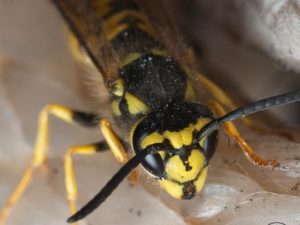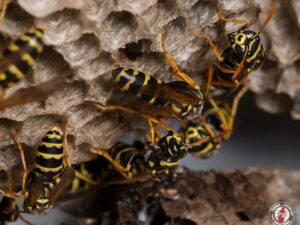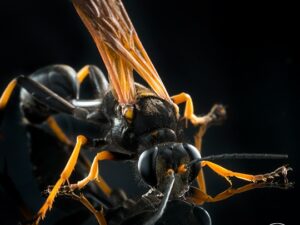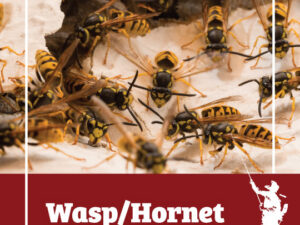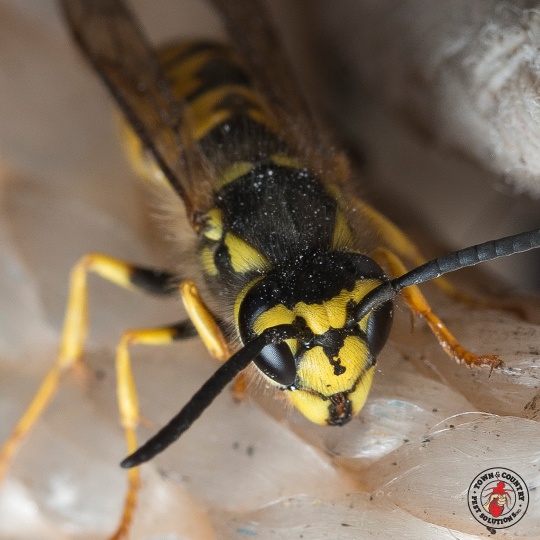
If you’ve ever been stung by a wasp, you know how painful and unpleasant it can be. Wasps are common insects that can be found in many outdoor spaces, from gardens to parks to campgrounds. To avoid getting stung, it’s important to take some precautions and know what to do if you encounter a wasp. In this article, we’ll go over some wasp safety tips to help you stay safe and avoid painful stings.
Wasps are a type of insect that can be found in many different environments, from gardens to parks to forests. They are generally not aggressive, but they can sting if they feel threatened or provoked. Wasps can be dangerous for people who are allergic to their venom, and even those who are not can experience pain and swelling from a sting. In this article, we’ll discuss some tips for staying safe around wasps and avoiding painful stings.
1. Wear Protective Clothing
If you’re going to be spending time in an area where wasps are present, it’s important to wear protective clothing. This can include long-sleeved shirts, pants, and closed-toe shoes. Avoid wearing brightly colored clothing or clothing with floral patterns, as this can attract wasps.
2. Avoid Wasp Nests
If you see a wasp nest, it’s important to avoid it. Wasps can be territorial and may feel threatened if you get too close to their nest. If you need to remove a wasp nest, it’s best to hire a professional to do it for you.
3. Be Careful When Eating Outdoors
If you’re eating outdoors, be careful with your food and drinks. Wasps are attracted to sweet smells and sugary foods, so keep these items covered and away from where you’re sitting. Don’t leave food or drinks unattended, as wasps may crawl inside.
4. Keep Garbage Bins Closed
Wasps are attracted to garbage, so it’s important to keep your garbage bins closed and away from where you’re sitting. Make sure the bins are securely closed and that there are no holes or gaps where wasps can enter.
5. Stay Calm If a Wasp Approaches
If a wasp approaches you, it’s important to stay calm and avoid swatting at it. Swatting at a wasp can make it feel threatened and more likely to sting. Instead, try to move away slowly and calmly.
6. Know What to Do if You Get Stung
If you do get stung by a wasp, it’s important to know what to do. Remove the stinger if it’s still in your skin, wash the area with soap and water, and apply a cold compress to reduce swelling. If you experience symptoms like difficulty breathing or swelling in your throat, seek medical attention immediately.
7. Use Wasp Repellent
There are a variety of wasp repellents available that can help keep these insects away from you. These can include sprays, traps, and electronic devices. Be sure to follow the instructions carefully when using these products.
8. Keep Your Yard Clean and Tidy
Keeping your yard clean and tidy can help reduce the likelihood of wasps making a nest in your yard. Remove any standing water, keep your grass trimmed, and keep garbage bins closed and away from where you’re sitting.
9. Be Careful When Working Outdoors
If you’re working outdoors, be careful around bushes, trees, and other areas where wasps may be nesting. Wear protective clothing and be aware of your surroundings.
10. Educate Yourself
The more you know about wasps, the more prepared you’ll be to stay safe around them. Take some time to learn about the different types of wasps that can be found in your area, their behavior, and what to do if you encounter one.
By following these wasp safety tips, you can reduce your chances of getting stung and stay safe while enjoying the outdoors. Remember to wear protective clothing, avoid wasp nests, be careful with your food and drinks, and stay calm if a wasp approaches you. If you do get stung, know what to do and seek medical attention if necessary. With these precautions in mind, you can enjoy your time outside without the fear of painful wasp stings.
FAQs
- What should I do if I find a wasp nest on my property?
- It’s best to hire a professional to remove a wasp nest from your property.
- Can wasps sting more than once?
- Yes, unlike bees, wasps can sting multiple times.
- How do I know if I’m allergic to wasp stings?
- If you experience symptoms like difficulty breathing or swelling in your throat after being stung, seek medical attention immediately.
- Are wasp repellents effective?
- Yes, there are a variety of wasp repellents available that can help keep these insects away from you.
- Can wasps be beneficial for the environment?
- Yes, wasps are important pollinators and can help control pests like caterpillars and flies.

